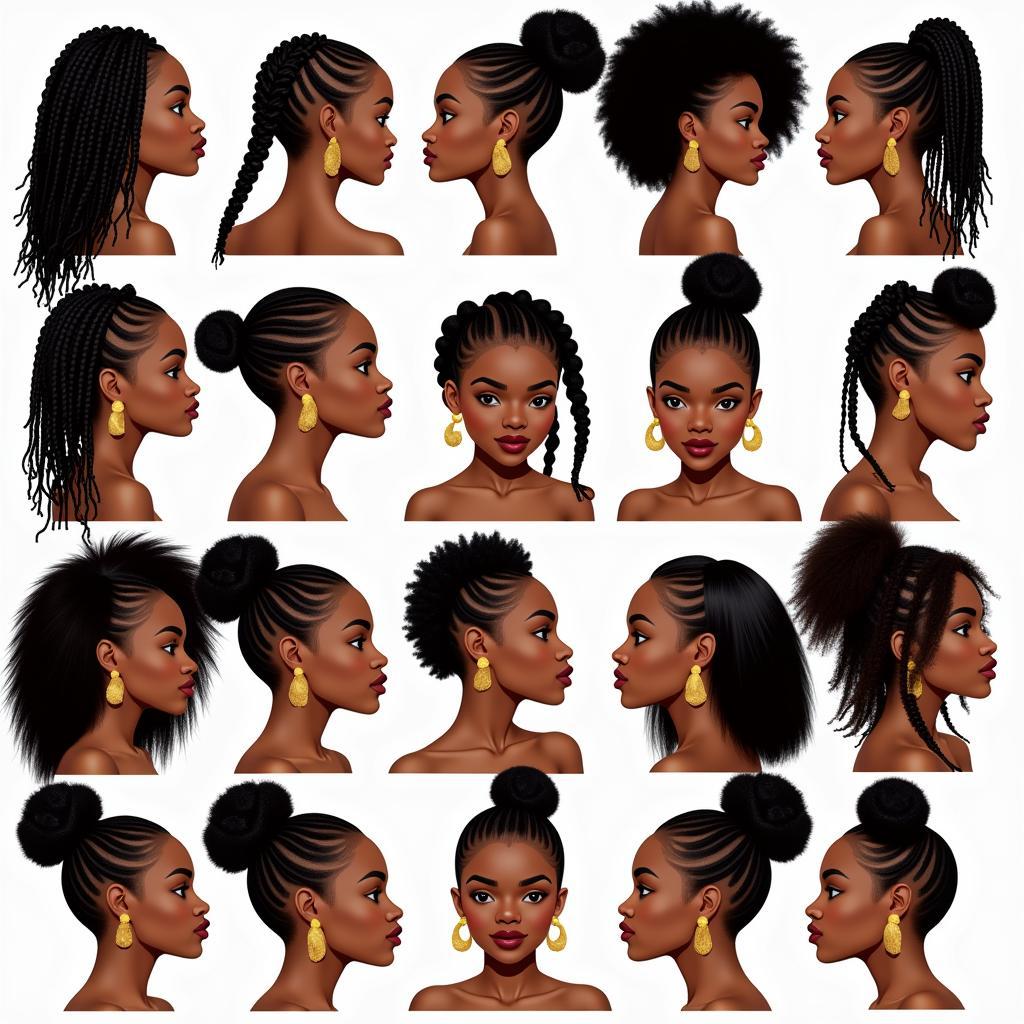The African Bullfrog as a Pet: A Comprehensive Guide
The African Bullfrog As A Pet is a fascinating and unique choice for experienced amphibian keepers. These large, voracious amphibians require specialized care and are not suitable for beginners. This guide delves into the specifics of owning an African bullfrog, covering everything from habitat setup and feeding to health concerns and ethical considerations.
Understanding the African Bullfrog: Temperament and Needs
African bullfrogs, also known as Pixie frogs, are native to sub-Saharan Africa. They are known for their impressive size, with males reaching up to 10 inches in length. They are ambush predators, spending most of their time buried in the substrate, waiting for prey to wander within striking distance. These frogs are not known for their social skills, and they can be territorial, especially males. Understanding their natural behaviors is crucial for providing appropriate care. Learn more about their adaptations at african bullfrog adaptations.
Housing Your African Bullfrog: Creating a Suitable Habitat
A large terrarium, at least 20 gallons for a single adult, is essential for an African bullfrog. The substrate should be a mix of coconut fiber, sphagnum moss, and eco-earth, deep enough for the frog to burrow completely. A large, shallow water dish is crucial, as bullfrogs spend a significant amount of time soaking. Maintaining appropriate humidity and temperature is also vital for their health.
Feeding the Beast: What Does an African Bullfrog Eat?
African bullfrogs have a reputation for eating almost anything. Their diet in captivity should consist primarily of insects, such as crickets, roaches, and worms. They can also consume pinky mice and other small rodents occasionally. Overfeeding can be a problem, as these frogs are prone to obesity. For more details on their diet, check out african bullfrog eating mice and african bullfrog eating mouse.
Health Considerations: Common Ailments and Preventative Care
African bullfrogs are relatively hardy, but they can be susceptible to certain health issues, such as bacterial and fungal infections. Regular cleaning of the enclosure and proper humidity levels are crucial for preventing these problems. Quarantine any new additions to your collection to avoid introducing pathogens. These frogs are also known for consuming anything within their reach, so watch what you place inside the terrarium! See more at african bullfrog eating everything.
“Regular veterinary check-ups are recommended for all exotic pets, including African bullfrogs,” advises Dr. Anita Kerrigan, a renowned herpetologist specializing in amphibian care. “Early detection of health problems can greatly improve the prognosis.”
Is an African Bullfrog the Right Pet for You?
African bullfrogs can make fascinating pets for experienced keepers. However, they are not suitable for everyone. Their size, voracious appetite, and specific care requirements can be challenging. “Before acquiring an African bullfrog, thoroughly research their needs and be prepared to commit to their long-term care,” suggests Dr. Kerrigan.
Conclusion: A Rewarding Experience for the Dedicated Keeper
The African bullfrog as a pet offers a unique and rewarding experience for the dedicated keeper. By understanding their specific needs and providing appropriate care, you can enjoy the fascinating behaviors of these remarkable amphibians. Remember to prioritize their well-being and ethical considerations before making the decision to bring one into your home.
FAQs
- How long do African bullfrogs live in captivity? (Typically 10-15 years)
- Can I handle my African bullfrog? (Handling should be minimized to avoid stress and potential injury to both you and the frog. Their skin secretions can also be irritating.)
- How often should I clean my bullfrog’s enclosure? (Spot cleaning should be done daily, with a full deep clean every few weeks.)
- What is the ideal temperature for an African bullfrog enclosure? (75-85°F during the day and slightly cooler at night.)
- How can I tell if my African bullfrog is healthy? (Signs of a healthy bullfrog include clear eyes, smooth skin, and a good appetite.)
- Do African bullfrogs need UVB lighting? (While not strictly necessary, UVB lighting can be beneficial for their overall health.)
- Can I house multiple African bullfrogs together? (It is generally not recommended, as they can be territorial, especially males.)
Need further assistance? Contact us at Phone Number: +255768904061, Email: [email protected] Or visit us at: Mbarali DC Mawindi, Kangaga, Tanzania. We have a 24/7 customer service team.


